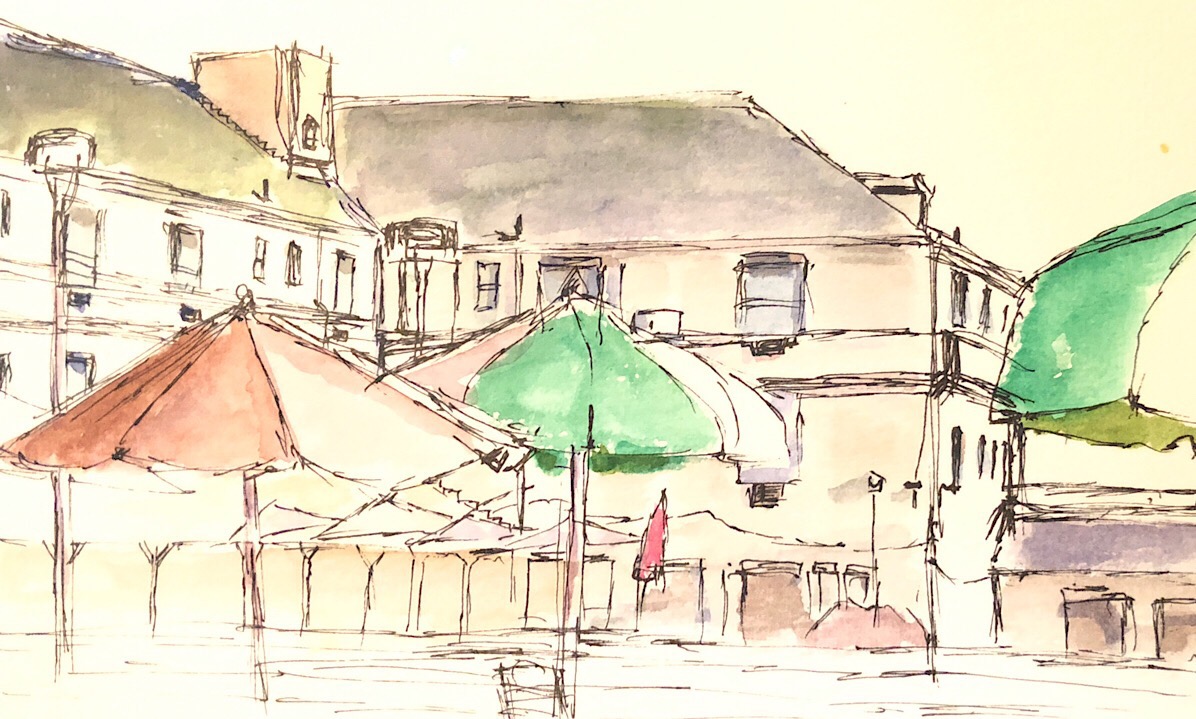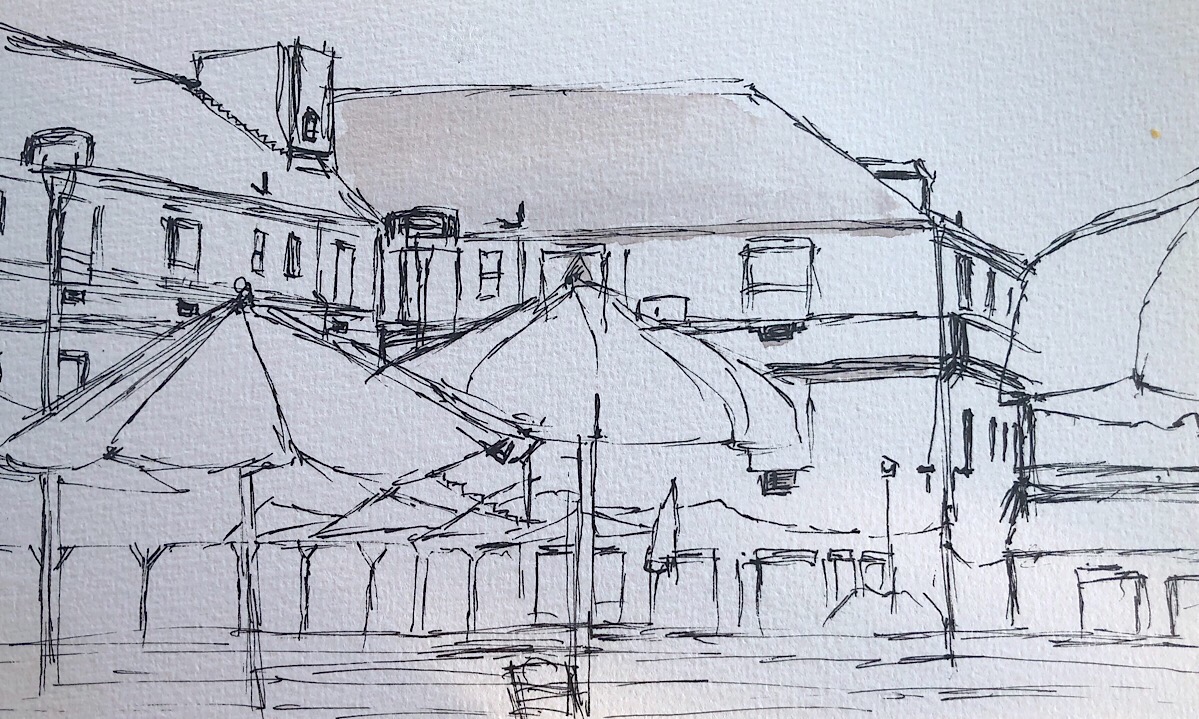What does math have to do with drawing? A lot, actually. In today's post, I thought I'd highlight two different approaches to drawing. These are time-honored methods that I've encountered in many books and art classes. They overlap, and I don't think one is necessarily superior to the other.
The first approach is taught by the instructor in my Saturday life session. He urges artists to start their drawing with straight lines, not curves. Part of his approach partakes of geometry. He emphasizes plumb lines to line things up, and he urges us to check angles and proportions constantly. And part of his approach reminds me of derivatives in calculus. To describe a curve, he suggests drawing the tangent to it in several spots, then gradually refining each tangent until the series of angled lines becomes a smooth curve. He discourages any shading until the basic contours are right. In this approach, you draw from the outside in.
Here's an example of one drawing I did with him on Saturday. You can still see some of the construction lines I used at the start. This was a short pose; I don't remember whether it was 5 or 10 minutes, but it was no more than that.












